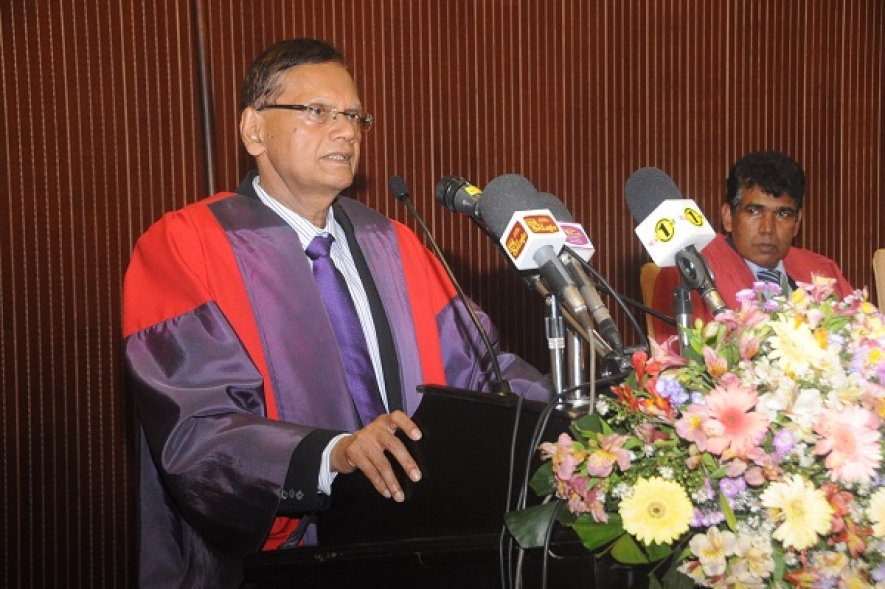Professor Peiris, a former Vice-Chancellor of the University of Colombo, was the Chief Guest at the event.
Minister Peiris commended Professor H.D. Karunaratne, Dean of the Faculty of Management and Finance, on the strikingly innovative and practical nature of the academic programmes launched by the Faculty. He noted that the MBA programme of the University of Colombo is one of the oldest Master of Business Administration programmes not only in Sri Lanka but in the South Asian region and that, during the last two decades, it had produced a significant number of professional managers who work with distinction in different parts of the world.
The Minister made particular reference to a feature of the programme which considerably enhances its quality and appeal. This is the constant endeavour by the Faculty to revamp the structure and content of the course to take account of contemporary demands. While specialization is already possible in fields such as finance, human resource management and marketing, the course being inaugurated today offers scope for specialization in international business — without doubt, a priority at the present time.
Prof. Peiris said that the government greatly appreciates this initiative by the University of Colombo. Responding to remarks made on this occasion by Dr. W.K. Hirimburegama, Vice-Chancellor of the University of Colombo, the Minister expressed satisfaction that the University is doing its utmost to make use of its geographical location in the capital city to draw upon the expertise of the commercial sector, in partnership with the academic community, and to offer the wider public the opportunity to benefit from a range of timely programmes which are especially appropriate in the business friendly environment brought about by peace and stability in the country.
He made mention of the government’s focus on the development of infrastructure on a scale without parallel at any other time, and especially the emphasis on highways, ports and airports. The underlying objective, he explained, is to strengthen Sri Lanka’s connectivity with the world. The country’s economic planning, he observed, hinges on identification of our human resources — and the creativity and energy of our youth — as the nation’s abiding strength. The current challenge is to further enhance this reservoir of human talent by new programmes of training which respond imaginatively to modern demands and open up new vistas of opportunity for those who have been exposed to these programmes.
Prof. Peiris laid stress on the five hub concept of the government, and the new avenues opening up in such areas as shipping and aviation, knowledge based industry, and the energy sector. He also referred to increased access to foreign markets made possible by the Free Trade Agreement with India and the ongoing negotiations with the People’s Republic of China for concluding an FTA, as an element of the Strategic Co-operation Partnership agreed upon between the leadership of the two countries. The introduction of technology as a stream, alternative to the traditional streams of liberal arts and science, is also a useful practical step to increase the relevance of educational curricula, he pointed out.
While equity with regard to the availability of educational facilities throughout the country has made a crucial difference, as indicated by the results of public examinations in the recent past, the government’s resolve is to give our youth access to growing opportunities not only within the country but on a regional and indeed global scale. Towards this end, a fruitful partnership between government and the universities is of the greatest importance, Prof. Peiris said.




















